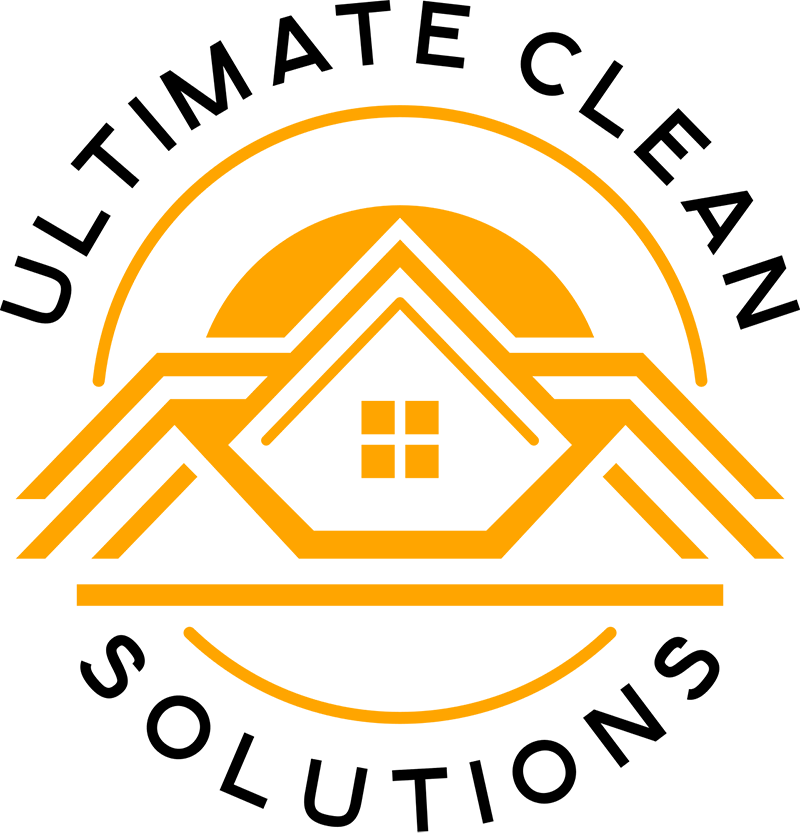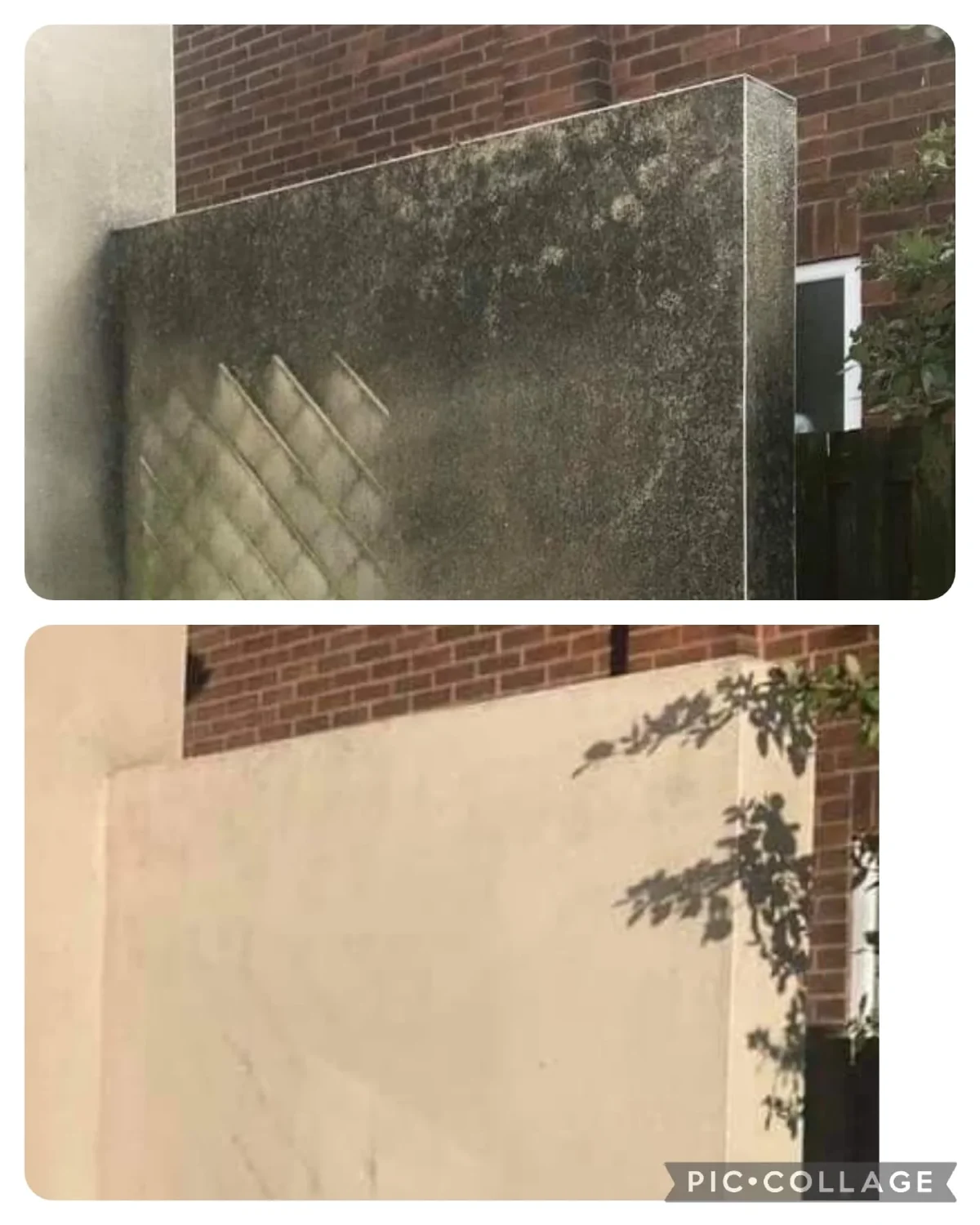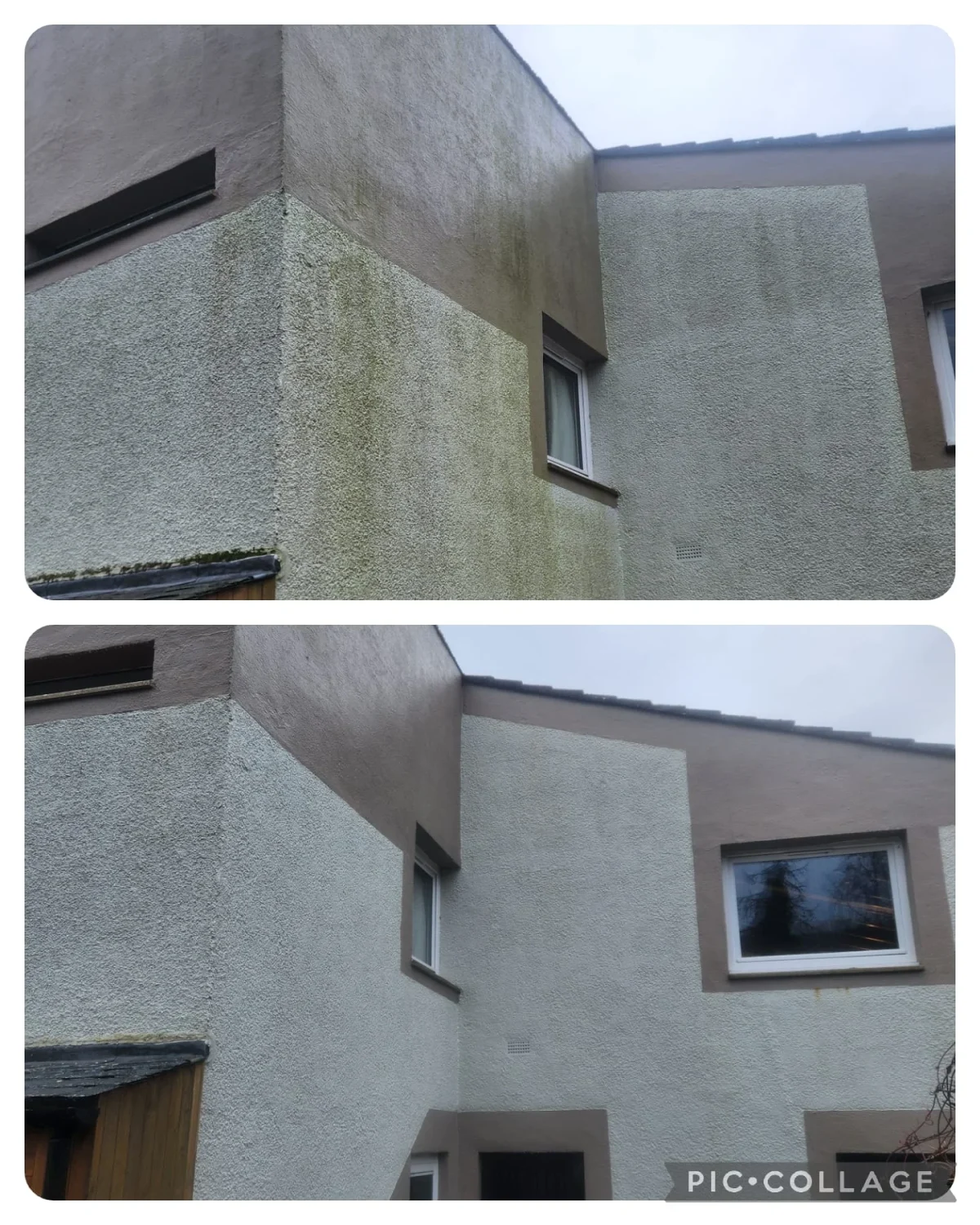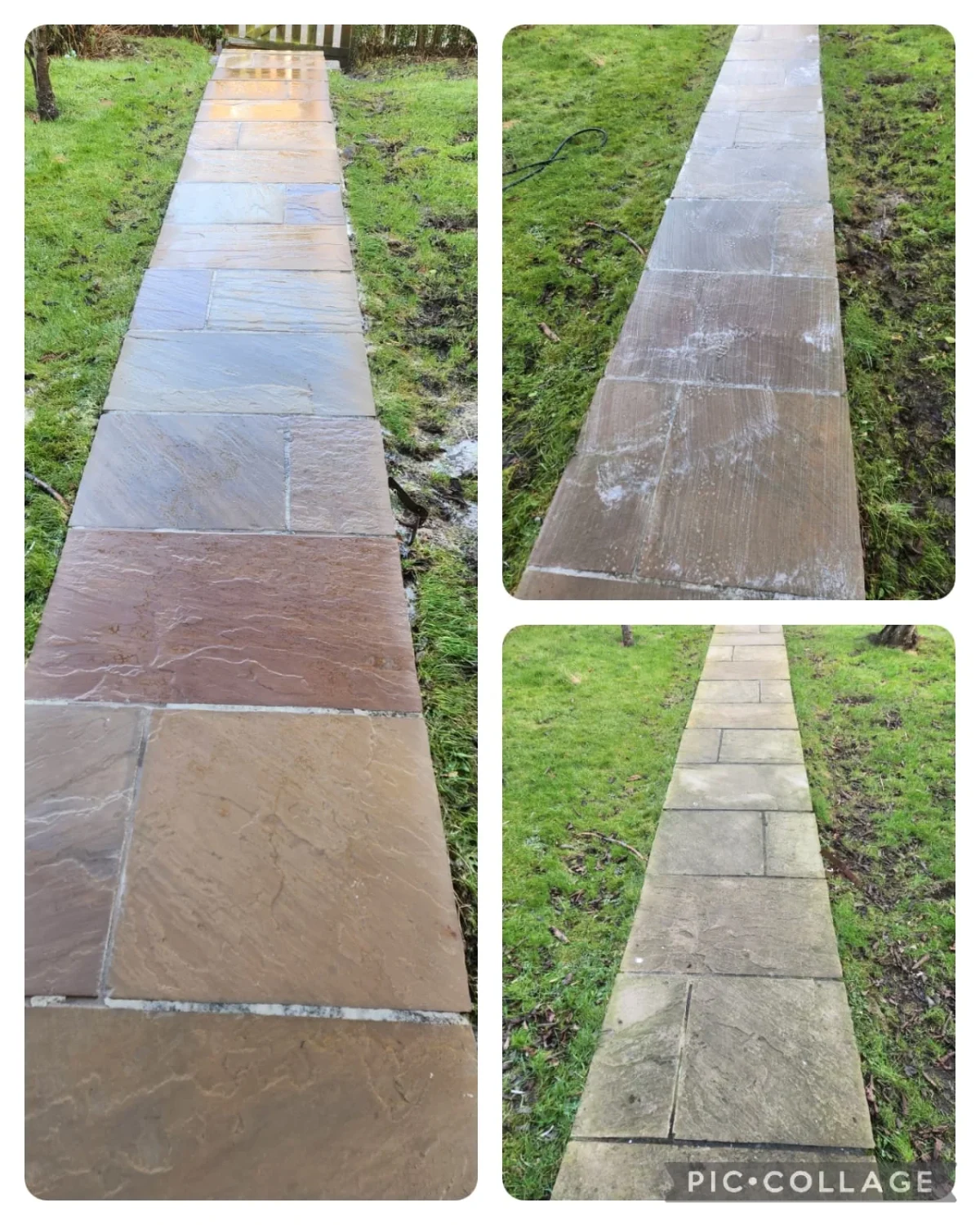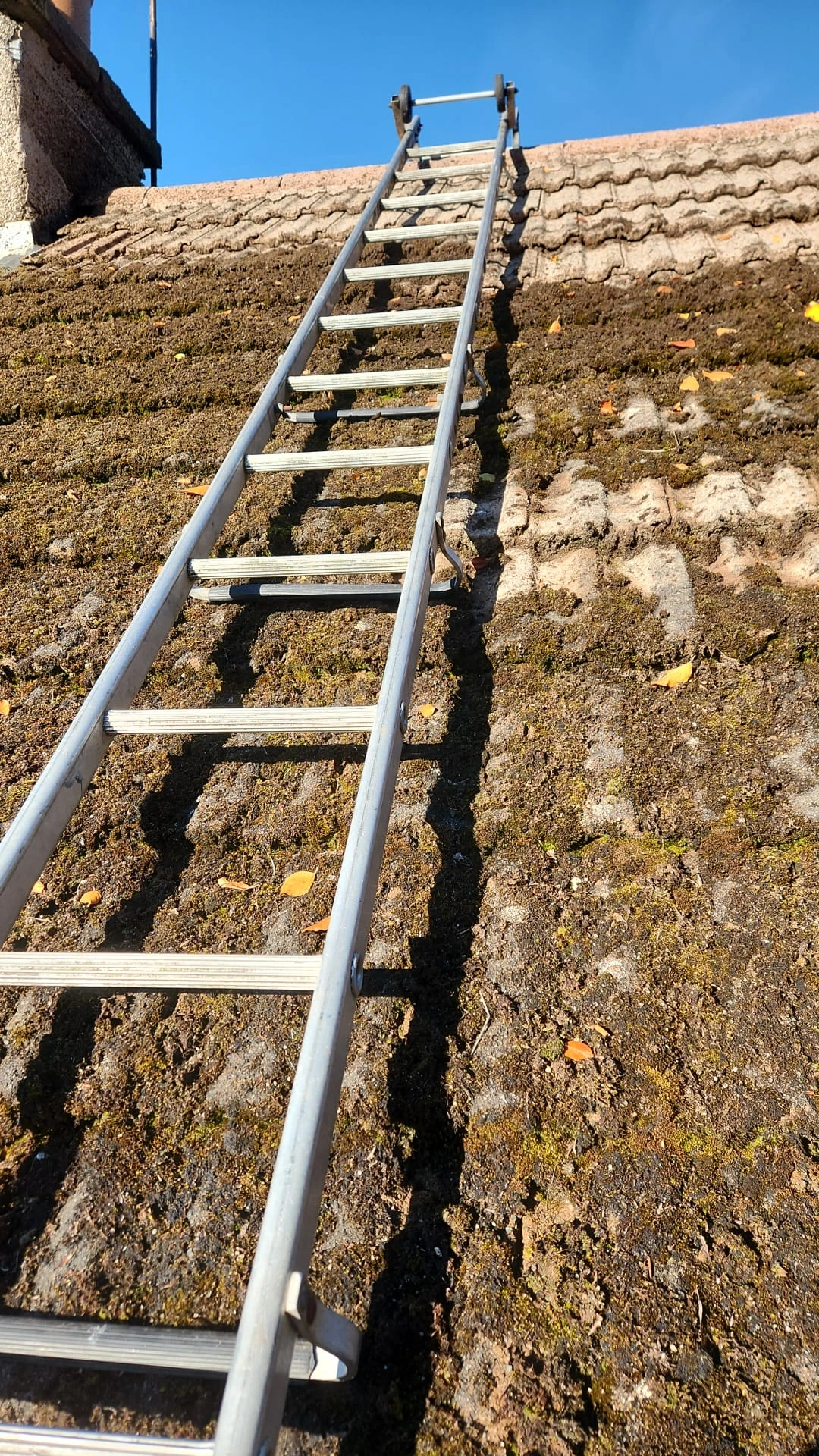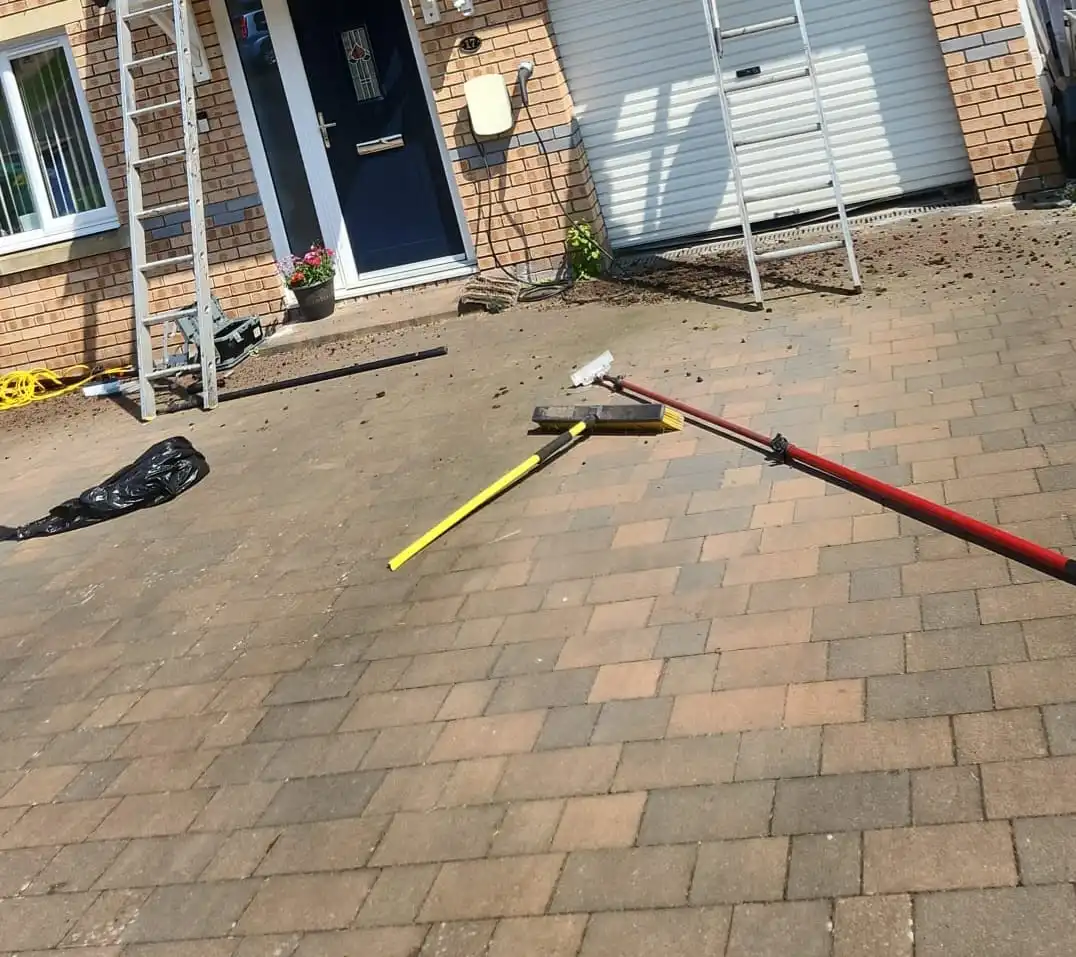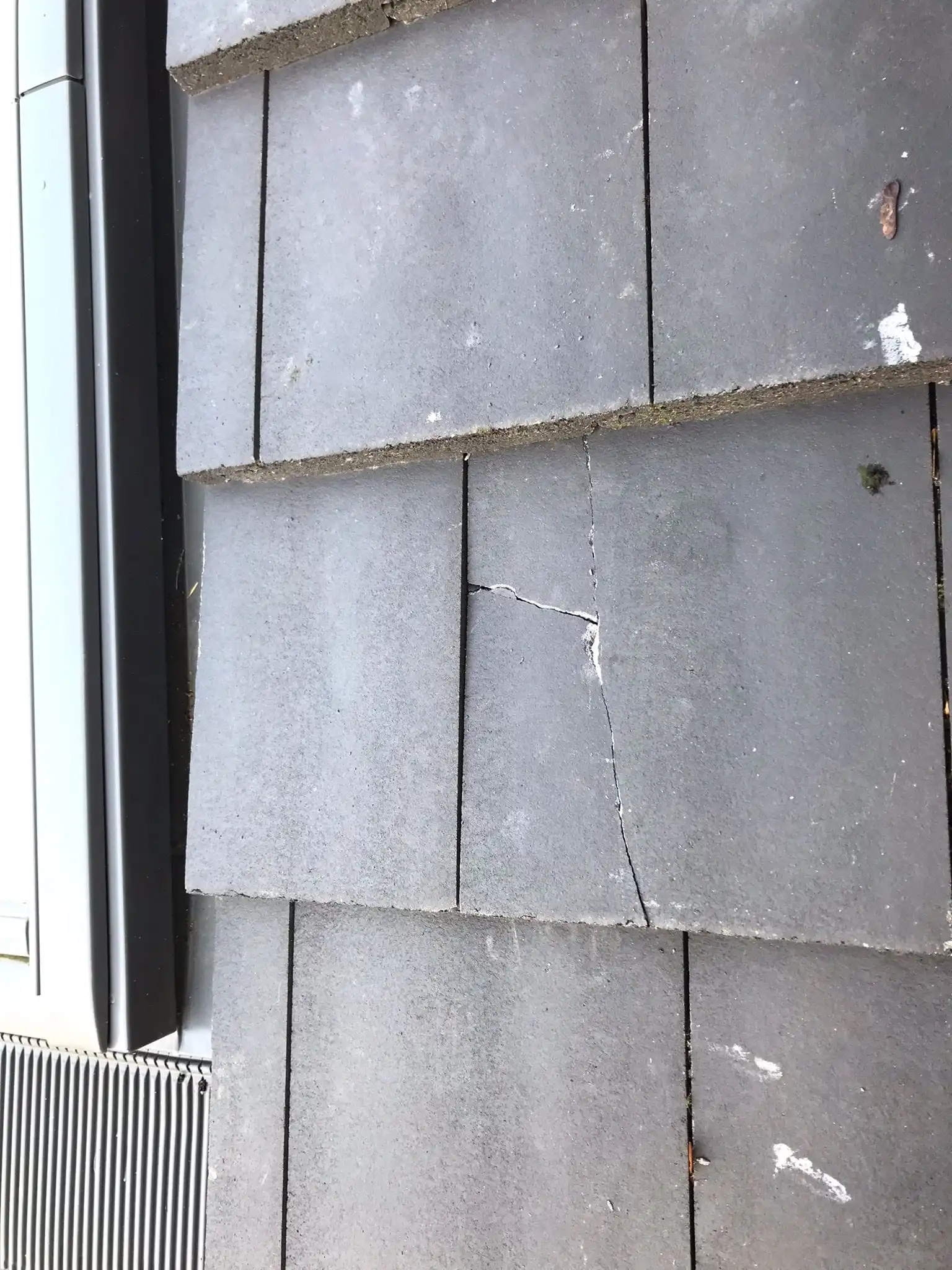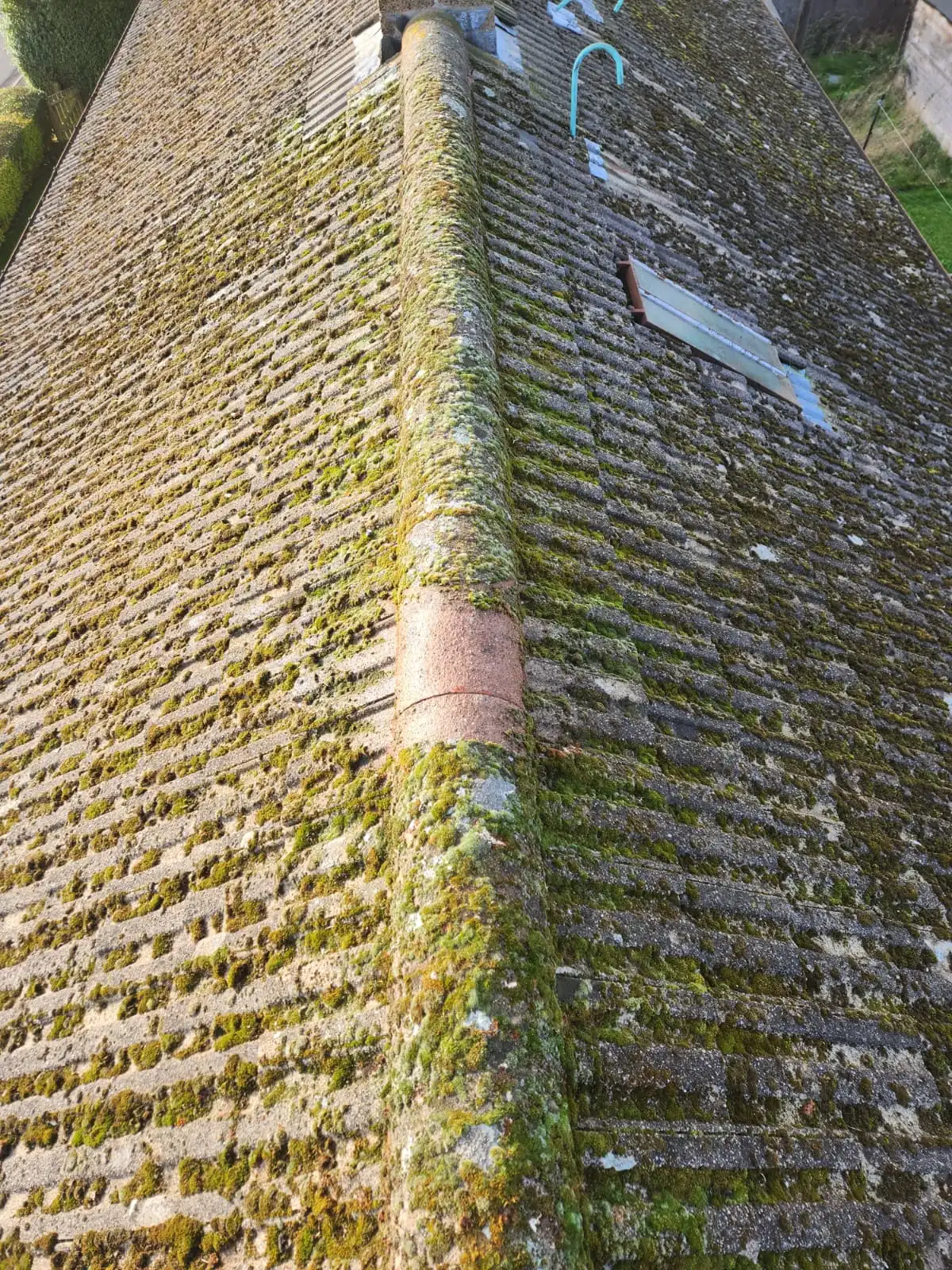What is Soft Washing?
Soft washing in Edinburgh is a service that not only we provide here; it is a whole industry that can be described as a gentle, yet highly effective cleaning technique used to remove dirt, grime, algae, moss, and other organic contaminants from surfaces. Unlike traditional pressure washing, which uses high-pressure water streams to blast debris off surfaces, soft washing relies on low-pressure water combined with specially formulated cleaning solutions to clean more fragile surfaces without causing damage. When asking, what is render cleaning; it is essentially often the process of cleaning walls that soft washing is best served to tackle.
The main difference between pressure washing and soft washing is the pressure applied during the cleaning process. Pressure washing utilizes high-pressure water (over 2000 psi), which can damage soft or delicate surfaces like wood, roofs, or painted exteriors. Pressure washing is always machine driven through a pressure washer. Soft washing, on the other hand, uses water pressure of under 500 psi, making it ideal for cleaning more delicate materials like roofs, render cleaning and decking. It is the preferred method for cleaning delicate surfaces of organic growth like algae, mould, and moss, as the low pressure prevents further damage, and the chemicals used help kill the growths and prevent them from reappearing.
What Are the Chemicals Used in Soft Washing?
Soft washing relies on a combination of chemicals to effectively clean surfaces without using high pressure. The most common chemicals used include sodium hypochlorite (bleach), biocides such as BAC50, and a range of other products for specific purposes like rust removal and oil stain treatments.
Sodium Hypochlorite
Sodium hypochlorite, commonly known as bleach, is a highly effective cleaning agent used in soft washing. It works by breaking down organic materials like algae, moss, and mold, making it ideal for roof cleaning and other surfaces prone to organic contamination. Typically, sodium hypochlorite is diluted to a lower concentration for soft washing to ensure that it effectively removes growths without damaging the surface or surrounding environment.
The chemical composition of sodium hypochlorite generally consists of a 12-15% concentration of sodium hypochlorite in water, with stabilizers added to prevent degradation over time. When used in soft washing, it is often diluted further to lower concentrations, particularly for more delicate surfaces. One of the main benefits of sodium hypochlorite is its ability to quickly and effectively kill algae and mold, which are common problems in the UK due to the wet climate.
BAC50 Biocide
BAC50 is another chemical widely used in the soft washing industry, particularly for its ability to kill bacteria, fungi, and algae. Composed mainly of quaternary ammonium compounds, BAC50 is a biocide that provides long-lasting protection against microbial growth. The biocide’s unique formula helps prevent the re-growth of algae and moss, keeping surfaces cleaner for longer than bleach-based solutions.
One of the key benefits of BAC50 is its residual effect, which means it continues to protect surfaces even after the cleaning is complete. However, it can be more expensive than sodium hypochlorite and may not be as effective for heavily contaminated surfaces. Despite this, BAC50 is valued for its less aggressive environmental impact compared to traditional bleach-based cleaners, making it a preferable choice for eco-conscious customers. In our blog, we mention the above chemicals in greater detail.
Other Chemicals in Soft Washing
Apart from sodium hypochlorite and BAC50, there is a wide variety of other chemicals used in soft washing for specific purposes. For instance, PureSeal UK sells “Smelly Gel,” a product designed to treat rust stains on surfaces. Smelly Gel works by chemically breaking down rust, enabling it to be safely removed from driveways, patios, and other areas where rust has accumulated.
Similarly, ResiBlock offers oil stain removers that can be used in soft washing applications. These products are specifically formulated to break down and dissolve oil stains on driveways, patios, and other surfaces. Soft washing ensures that these stains are lifted without the risk of pushing the contaminants deeper into the material, a risk associated with high-pressure cleaning.
These examples highlight the diversity of chemicals used within the soft washing industry, catering to various cleaning needs. From algae removal to rust and oil stain treatment, soft washing chemicals are tailored to meet the demands of both residential and commercial clients.
Application Methods in Soft Washing
To achieve effective cleaning, the soft washing chemicals must be applied correctly. The application method varies depending on the size of the job, the equipment available, and the type of surface being cleaned. Several different systems are used to apply soft washing solutions, each with its advantages and drawbacks.
Backpack Systems
Backpack sprayers are among the most commonly used tools for soft washing. These portable systems allow operators to easily apply chemicals to surfaces by wearing a tank on their back. The tank holds the cleaning solution, while a hose and nozzle allow the operator to apply the solution with precision.
Backpack sprayers are ideal for smaller projects or when access to the area is limited. They are portable and cost-effective, making them a popular choice for residential jobs. However, their limitations include the fact that they are generally only suitable for small to medium-sized jobs due to the relatively small capacity of the backpack tank.
Van-Mounted Systems
For larger-scale commercial or multi-storey projects, van-mounted soft washing systems are typically used. These systems are installed inside a van or trailer and come equipped with a large tank to hold the cleaning solution, along with pumps, hoses, and specialized nozzles. The van-mounted system can be easily transported to different locations and is capable of handling large-scale cleaning jobs.
The advantage of van-mounted systems lies in their high-volume capability, allowing operators to clean larger areas more efficiently. They provide a constant supply of cleaning solution, ensuring consistent application throughout the cleaning process.
X-Jet Nozzle
The X-Jet nozzle is another popular application tool, especially for large flat areas like driveways and patios. This nozzle attaches to the end of a pressure washer and uses the water flow to draw in the cleaning solution. It allows for efficient coverage of ground areas but can result in overspray, which is an issue in residential or sensitive environments.
To address this issue, operators must be careful about wind direction and ensure that the overspray does not affect surrounding vegetation or surfaces. Nonetheless, the X-Jet nozzle is still a useful tool for cleaning expansive areas where precision is less critical.
Gutter Vac Systems and Sniper Soft Washing Nozzle
Innovations in soft washing equipment have significantly improved the precision of chemical application. One such innovation is the gutter vac system, which uses a waterfed pole to apply soft wash chemicals with great accuracy. The Sniper Soft Washing Nozzle, which attaches to the end of a waterfed pole, allows for highly controlled spraying of cleaning solutions.
The Sniper nozzle is particularly useful for delicate surfaces or hard-to-reach areas like roofs or gutters. It enables operators to apply the solution precisely, minimizing the risk of overspray and reducing the potential for damage to surrounding areas. This innovative approach to soft washing demonstrates how the industry is evolving to meet the demands of clients seeking cleaner and more controlled methods of application.
Surfaces Commonly Treated with Soft Washing
Soft washing is ideal for cleaning a variety of surfaces, particularly those that are prone to organic contamination like algae, moss, and mold. The most common surfaces treated with soft washing include:
Roofs
Roofs are a prime candidate for soft washing, especially when dealing with organic growths like moss and algae. These growths can cause damage to the roofing material if left unchecked. Soft washing is the safest and most effective way to remove these growths without causing harm to the roof itself.
Walls
When we are Render cleaning in Edinburgh, particularly those walls exposed to the elements, can be noticed to accumulate dirt and algae over time. Soft washing provides an excellent solution for cleaning these surfaces without the risk of damage, particularly when the walls are painted or made from delicate materials like render.
Driveways and Patios
Driveways and patios are common areas where soft washing is used. Stains from oil, moss, and dirt can be effectively removed using low-pressure water combined with the right chemical solution. Soft washing helps maintain the integrity of these surfaces while achieving a deep clean.
Decking
Decking can also benefit from soft washing, especially when algae or mold have accumulated. However, it is essential to dilute the chemicals used for cleaning and finish with a gentle pressure wash to avoid damaging the surface. Sometimes, a combination of soft washing and pressure washing is used to achieve optimal results.
The Growing Soft Washing Industry and Innovations
The soft washing industry is growing rapidly, driven by increasing demand for safer, more effective cleaning methods. According to a report by Grand View Research, the global pressure washing market is expected to grow significantly in the coming years, with the soft washing segment gaining popularity due to its environmental benefits and ability to clean delicate surfaces effectively. The report also highlights the growing interest in eco-friendly cleaning methods as an essential driver of this growth.
One innovation that demonstrates the sector’s expansion is the introduction of more precise soft washing equipment, such as the Sniper Soft Washing Nozzle and the development of automated systems. In a 2024 article from Cleaning & Maintenance Management (CMM), industry experts noted that the use of more advanced soft washing systems allows for more accurate application, reducing chemical waste and improving the overall effectiveness of cleaning. This is just one example of how innovation continues to shape the future of the industry, making soft washing more efficient and environmentally friendly.
As new tools and techniques continue to emerge, it is clear that the soft washing sector is expanding rapidly. From new chemical formulations to advanced application systems, soft washing is evolving into a highly sophisticated industry, meeting the needs of both residential and commercial customers with precision and eco-consciousness
